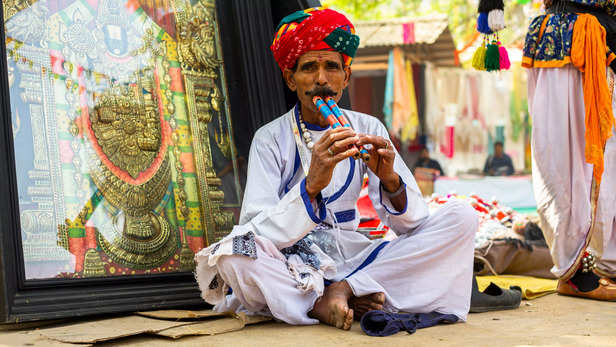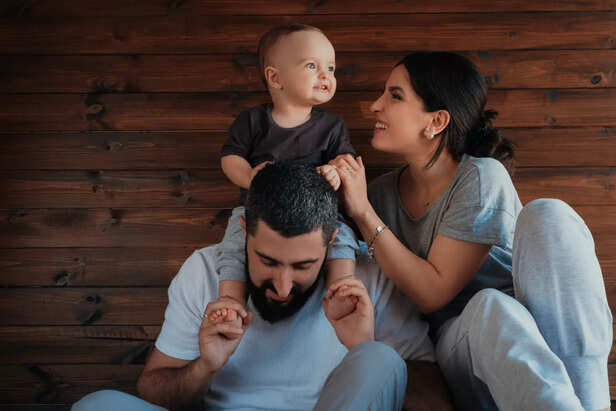Is Traditional Masculinity Dying? The New Indian Man Explained
Nikita Kanyal | Jan 04, 2025, 17:40 IST
Is Traditional Masculinity Dying? The New Indian Man Explained
Is conventional masculinity disappearing in India? Explore how the Modern Indian Man is transforming the interpretation of masculinity in the contemporary world. From emotional transparency and shared duties in relationships to accepting self-care and mental wellness, this changing idea is contesting long-standing conventions. In this enlightening article, we examine how Indian men are reinterpreting strength, vulnerability, and equality, establishing a new benchmark for masculinity that’s more advanced, equitable, and emotionally aware than ever previously. Don’t overlook this in-depth investigation into the future of Indian masculinity!
In a swiftly changing world, where perceptions about gender roles, identity, and societal expectations are increasingly challenged, one subject remains a source of contention: masculinity. More precisely, the inquiry on numerous minds today is whether traditional masculinity, as we have understood it for generations, is fading and if it is, what is arising in its stead? Within the framework of India, a nation with profoundly entrenched cultural and social norms, this shift is particularly noteworthy.
The Traditional Masculine Image

For generations, the idea of the "Indian man" has been largely defined by a set of rigid expectations. Strength, stoicism, and dominance have often been seen as the core traits of traditional masculinity. Men were expected to be providers, protectors, and emotional fortresses. The image of the “man of the house” still looms large in many communities, where men are often expected to be the sole breadwinners, leading their families with authority and often making critical decisions.
This interpretation of masculinity was honored in classic Bollywood films, in familial arrangements, and through societal and family expectations. The depiction of men as strong figures, lacking in vulnerability, influenced not only their self-perception but also society's perception of them.
Changing Dynamics: The Rise of the

However, a transformation has occurred in recent decades. Due to urbanization, globalization, and the emergence of social media, Indian men are reconsidering the meaning of masculinity. The emergence of a more emotionally intelligent, socially aware, and forward-thinking generation is confronting established norms. Men are now being encouraged, even expected, to embrace a more balanced view of masculinity one that celebrates emotional intelligence, equality, and empathy.
This "New Indian Man" is not confined by outdated stereotypes. He’s comfortable expressing his emotions and recognizing his vulnerabilities. He takes pride in his appearance, not because of vanity, but because he understands self-care. The new-age man embraces roles that were once seen as feminine, such as cooking, cleaning, and nurturing, often in equal partnership with women. He is redefining what it means to be strong not just in terms of physical power, but in emotional resilience and psychological maturity.

The changing dynamics are also influencing how Indian men interact in their personal relationships. The New Indian Man is increasingly seen as an equal partner in marriage and relationships. He is actively participating in child-rearing, sharing responsibilities, and supporting his partner’s career ambitions. In short, the "provider" role is expanding into a more balanced, shared responsibility. Men today are not only looking for love but are also learning to be better friends, listeners, and caretakers in their relationships.
This shift is not just about romantic relationships—it extends to male friendships as well. Today, there’s a growing trend of men engaging in deep, emotional conversations with their friends, something that was once seen as a vulnerability. The notion of "boys don’t cry" is becoming a relic of the past, and men are embracing the importance of emotional connection in their friendships.
Navigating the Change

However, this evolution doesn’t come without its challenges. In a country like India, where traditional values often remain deeply ingrained in rural and even urban spaces, there can be resistance to the new forms of masculinity. Men who embrace emotional openness or take on roles traditionally reserved for women may face societal backlash or judgment, sometimes from their own families or communities.
Furthermore, the process of redefining masculinity is not about rejecting tradition altogether. It’s about blending the best of old and new. Respect for women, responsibility, and self-reliance are still key components of the modern man’s identity. What’s changing is the understanding that strength doesn’t have to be defined by dominance, and vulnerability is not a sign of weakness but a display of strength.
The Future of Indian Masculinity
So, is traditional masculinity fading away? In many respects, yes—but in its stead, a new, more inclusive, and empathetic version of masculinity is taking shape. The New Indian Man represents someone who is emotionally aware, forward-thinking, and more responsive to the evolving demands of relationships, society, and his environment. This doesn’t imply that men will cease to be strong or accountable, it merely indicates that they will characterize those traits in a more holistic, human manner. The journey is far from complete, but the future appears more caring, balanced, and promising than ever before.
As we advance, one thing is certain: the New Indian Man is not merely a fad. He’s a transformation in thinking that is reshaping what it genuinely signifies to be a man in the contemporary world. And this change is something we can all welcome.
The Traditional Masculine Image

Defined by strength, stoicism, and dominance
For generations, the idea of the "Indian man" has been largely defined by a set of rigid expectations. Strength, stoicism, and dominance have often been seen as the core traits of traditional masculinity. Men were expected to be providers, protectors, and emotional fortresses. The image of the “man of the house” still looms large in many communities, where men are often expected to be the sole breadwinners, leading their families with authority and often making critical decisions.
This interpretation of masculinity was honored in classic Bollywood films, in familial arrangements, and through societal and family expectations. The depiction of men as strong figures, lacking in vulnerability, influenced not only their self-perception but also society's perception of them.
Changing Dynamics: The Rise of the New Indian Man

Breaking free from outdated masculinity norms
However, a transformation has occurred in recent decades. Due to urbanization, globalization, and the emergence of social media, Indian men are reconsidering the meaning of masculinity. The emergence of a more emotionally intelligent, socially aware, and forward-thinking generation is confronting established norms. Men are now being encouraged, even expected, to embrace a more balanced view of masculinity one that celebrates emotional intelligence, equality, and empathy.
This "New Indian Man" is not confined by outdated stereotypes. He’s comfortable expressing his emotions and recognizing his vulnerabilities. He takes pride in his appearance, not because of vanity, but because he understands self-care. The new-age man embraces roles that were once seen as feminine, such as cooking, cleaning, and nurturing, often in equal partnership with women. He is redefining what it means to be strong not just in terms of physical power, but in emotional resilience and psychological maturity.
Modern Masculinity in Relationships

Becoming an equal partner in marriage,
The changing dynamics are also influencing how Indian men interact in their personal relationships. The New Indian Man is increasingly seen as an equal partner in marriage and relationships. He is actively participating in child-rearing, sharing responsibilities, and supporting his partner’s career ambitions. In short, the "provider" role is expanding into a more balanced, shared responsibility. Men today are not only looking for love but are also learning to be better friends, listeners, and caretakers in their relationships.
This shift is not just about romantic relationships—it extends to male friendships as well. Today, there’s a growing trend of men engaging in deep, emotional conversations with their friends, something that was once seen as a vulnerability. The notion of "boys don’t cry" is becoming a relic of the past, and men are embracing the importance of emotional connection in their friendships.
Navigating the Change

Redefining masculinity
However, this evolution doesn’t come without its challenges. In a country like India, where traditional values often remain deeply ingrained in rural and even urban spaces, there can be resistance to the new forms of masculinity. Men who embrace emotional openness or take on roles traditionally reserved for women may face societal backlash or judgment, sometimes from their own families or communities.
Furthermore, the process of redefining masculinity is not about rejecting tradition altogether. It’s about blending the best of old and new. Respect for women, responsibility, and self-reliance are still key components of the modern man’s identity. What’s changing is the understanding that strength doesn’t have to be defined by dominance, and vulnerability is not a sign of weakness but a display of strength.
The Future of Indian Masculinity
As we advance, one thing is certain: the New Indian Man is not merely a fad. He’s a transformation in thinking that is reshaping what it genuinely signifies to be a man in the contemporary world. And this change is something we can all welcome.
